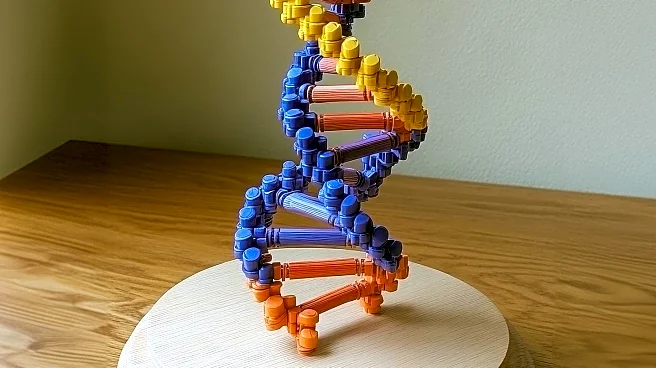What is the story about?
What's Happening?
Researchers from the University of Tokyo have discovered giant loops of DNA, named 'Inocles', in the oral microbiome that may play a role in reducing cancer risk. These extrachromosomal DNA elements, found in Streptococcus bacteria, are believed to help bacteria adapt to the mouth's environment. The discovery was made using a bespoke sequencing system, preNuc, which isolates bacterial DNA from human DNA. The study suggests that Inocles could be linked to cancer protection, as individuals with head and neck cancer had fewer of these DNA elements.
Why It's Important?
The discovery of Inocles offers new insights into the oral microbiome's role in health and disease prevention. These DNA loops may contribute to bacterial adaptation and survival, potentially influencing immune responses and reducing cancer risk. Understanding the functions of Inocles could lead to novel approaches in cancer prevention and oral health management. The research highlights the importance of exploring extrachromosomal DNA elements in the human microbiome, which may have broader implications for health and disease.
What's Next?
Further research is needed to understand the functions of genes within Inocles and their potential impact on oral health. Scientists aim to investigate whether these DNA elements can spread between individuals and how they might influence cancer risk. The study opens new avenues for exploring the relationship between the oral microbiome and systemic health, with potential applications in cancer prevention strategies.
Beyond the Headlines
The discovery of Inocles challenges conventional DNA sequencing methods and underscores the complexity of the human microbiome. By revealing the presence of large extrachromosomal DNA elements, the study invites further exploration of their roles in health and disease, potentially leading to breakthroughs in microbiome research and cancer prevention.















